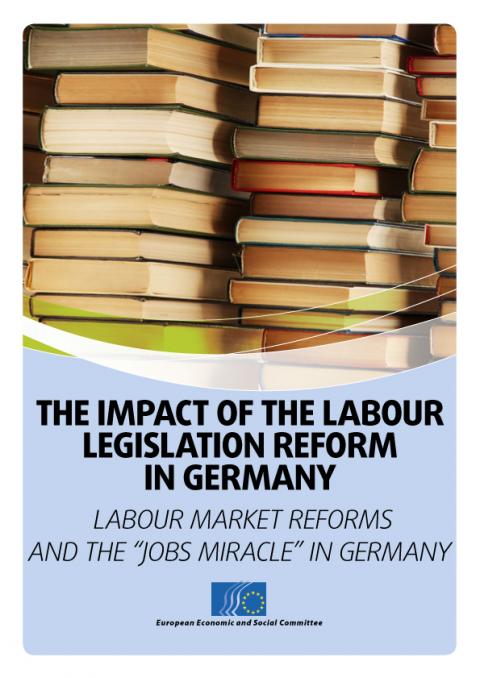European Economic
and Social Committee
The impact of the labour legislation reform in Germany - Labour market reforms and the “jobs miracle” in Germany
Radical labour market reforms were implemented in Germany between 2002 and 2005, reforms that overturned the received idea that Germany was suffering from "reform paralysis". However, the part of these reforms that specifically concerned labour law was very small; their main purpose was to overhaul the social security and activation system for the unemployed and others of working age who are in need of support in line with a "work first" strategy. These reforms were extremely controversial and changed the party-political landscape in Germany.
Shortly after the reforms were introduced, a trend reversal took place on the German labour market: unemployment fell, employment with mandatory social insurance contributions picked up again, and the German labour market proved extraordinarily resilient through the 2008-2009 financial and economic crisis. Since then, the German economy has been so strong as to arouse increasing concern about economic imbalances within Europe. At the same time, however, neighbouring European countries are endeavouring to emulate Germany's supposed path to success by implementing "structural reforms" along the lines of the German model, in the hope of achieving similar results.

